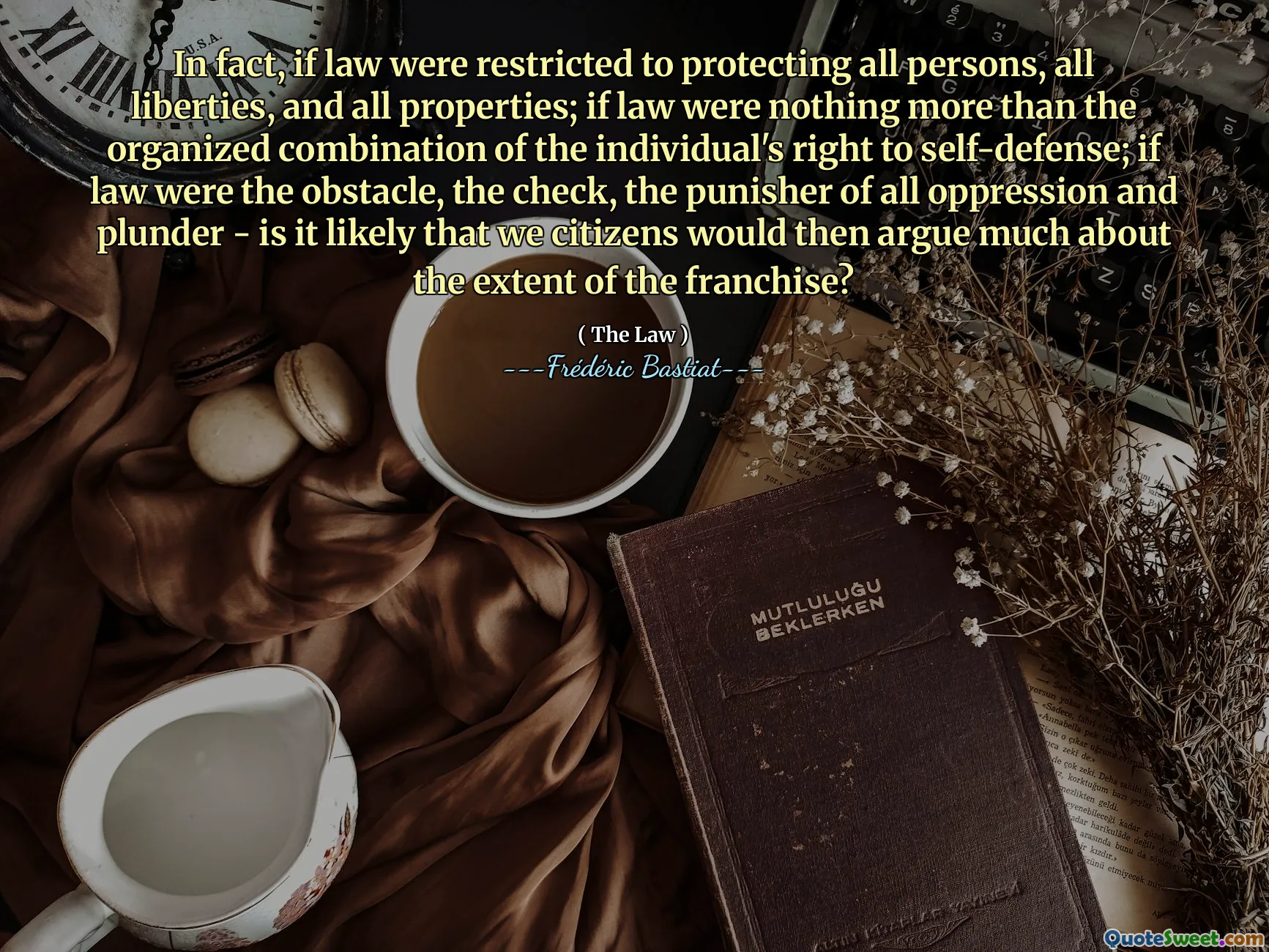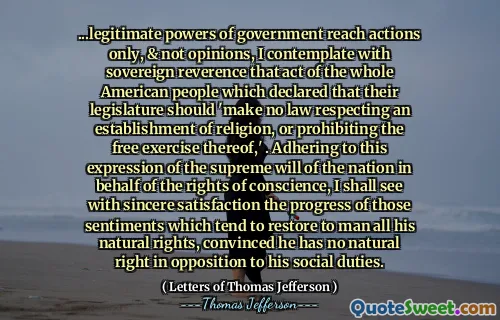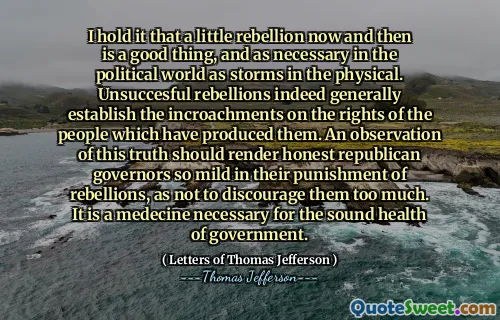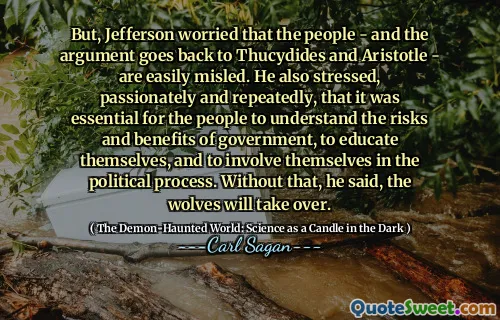
In fact, if law were restricted to protecting all persons, all liberties, and all properties; if law were nothing more than the organized combination of the individual's right to self-defense; if law were the obstacle, the check, the punisher of all oppression and plunder - is it likely that we citizens would then argue much about the extent of the franchise?
This quote from Frédéric Bastiat's The Law challenges us to reconsider our fundamental understanding of the purpose of law. Bastiat suggests that the true purpose of law should be limited exclusively to the protection of individuals, their liberties, and their properties. Law, in its purest form, acts as an organized mechanism to enforce the individual's right to self-defense against oppression and plunder, preventing the abuse of power.
This perspective stands in stark contrast to the expansive roles often attributed to law in contemporary society—where it sometimes becomes a tool for regulating, redistributing, or intervening in personal and economic affairs beyond mere protection. Bastiat's vision asks us to imagine a system where laws do not overreach but focus solely on preventing harm, preserving freedom and security. In such a system, contentious debates about who gets to participate in governance—the extent of the franchise—might lose their urgency because the primary role of government would be clearly circumscribed.
The implications are profound: it advocates for a limited government model, emphasizing individual rights and minimal interference, resonating strongly with classical liberal and libertarian philosophies. It also implicitly critiques overgrown bureaucracies and laws that may have deviated from this ideal, perhaps suggesting that excessive lawmaking breeds disputes and discontent.
Bastiat’s argument encourages reflection on how legal frameworks shape society and the balance between collective governance and individual liberty. It prompts an important question: can a society truly achieve fairness and harmony when laws exceed the narrow purpose of protection? It remains a highly relevant consideration in ongoing discussions about law, governance, and rights.






